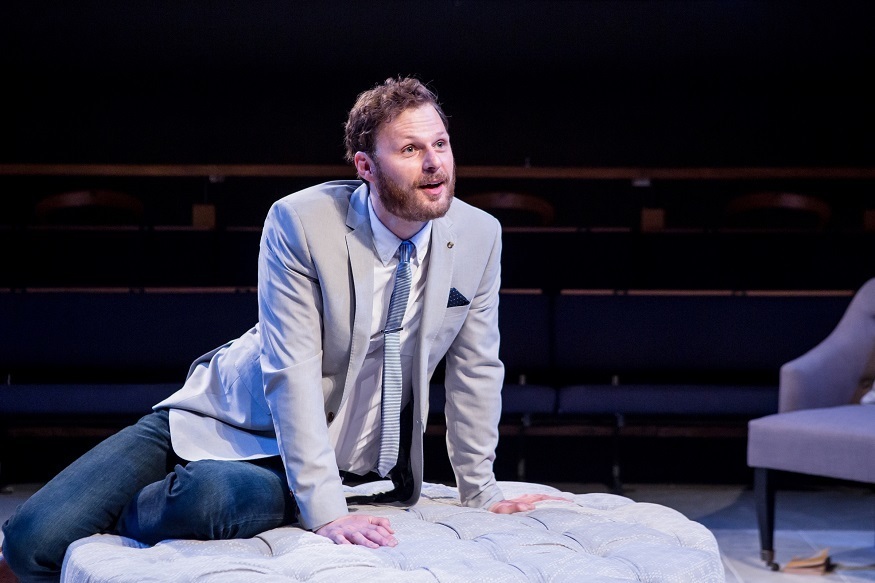Review: No Winners In The Philanderer's Banter Of The Sexes

The Orange Tree breathes new life into George Bernard Shaw's rarely performed but characteristically witty second play The Philanderer.
Written in 1893, it was not publically staged until 1907 due to censorship. One of Shaw's 'Plays Unpleasant', which examines serious social issues within a comic framework, The Philanderer focuses on love, marriage, sex and gender relations, in what for the time was quite a radical and frank treatment.
The titular character, Leonard Charteris, is a womaniser with 'advanced views' who pays lip service to women's equality of independence but uses this as a cover to avoid any emotional commitment to the women who 'chase' him. He has not broken off with the possessively passionate Julia and yet is making love to the coolly sophisticated widow Grace. Meanwhile, the sincere but gauche Dr Paramour, who is looking for a wife, becomes unwittingly entangled in their relations.
Being Shaw, this is a wordy account of gradually changing gender politics, including the 'New Woman' particularly associated with the proto-feminist dramas of Ibsen, as well as touching on medical ethics and theatre naturalism. But as always Shaw enlivens his intellectual debate with entertaining banter. Much fun is had with the fictitious Ibsen Club which allows only members who are 'womanly men' and 'manly women', and also the huge disappointment of the doctor who finds his patient does not after all have the new fatal liver disease that he thought he'd discovered.
Director Paul Miller subtly puts the play in a contemporary setting, with modern dress and décor without updating the text, in an admirably unfussy and fresh production. Even if the parallels between then and now are rather stretched, especially in regard to the much changed position of women in society, the complicated romantic relations in the love triangle/quartet at the heart of the play still resonate today.
Miller (who also successfully directed Shaw's first play Widowers' Houses in 2014) has chosen to stage both of the final acts that Shaw wrote: the conventionally optimistic ending with a marriage proposal that he was persuaded to add, followed by his original and more controversial downbeat ending involving a discussion of divorce. It makes for quite a long evening, with two shortish intervals for set changes, but works pretty well.
Designer Simon Daw's lightly indicates the move from smart drawing room with a chandelier, to the library of the Ibsen Club with its revolving bust of the Master himself, and finally the doctor's consulting room with swivel chair, surgical instruments and a forensic electric light.
Rupert Young makes an amusingly amoral Charteris, a provocative Ibsenite philosopher who wants to keep his options open but who realises he will always essentially be alone. Dorothea Myer-Bennett gives a very funny performance as the histrionically jealous Julia, counterpointed by Helen Bradbury's poised, rational Grace, and Christopher Staines gets laughs out of the ardently clumsy Dr Paramore stirring tea with a scalpel. There is good support from Mark Tandy as Grace's chauvinist theatre critic father, Michael Lumsden as Julia's traditionalist colonel father and Paksie Vernon as her younger sister who stands up for her rights in a 'manly' way.
The Philanderer is on at the Orange Tree Theatre, 1 Clarence St, Richmond TW9 2SA, until 25 June. Tickets are £10–£25. Londonist saw this production on a complimentary ticket.
Last Updated 18 May 2016



